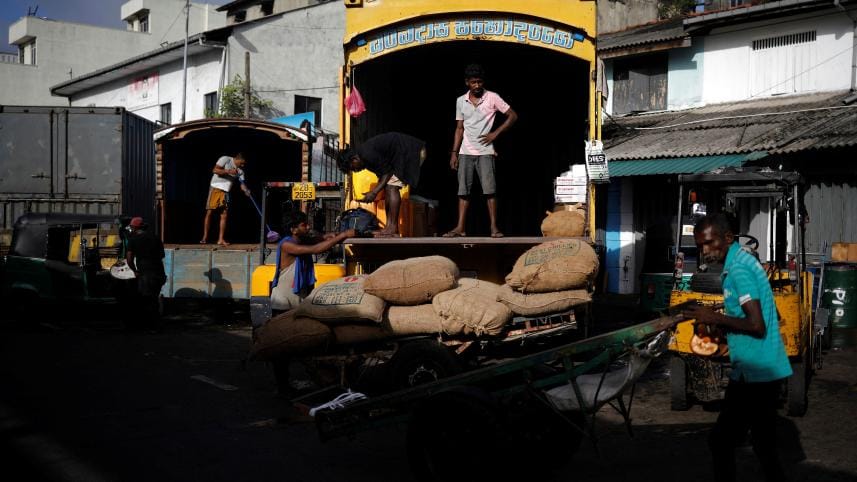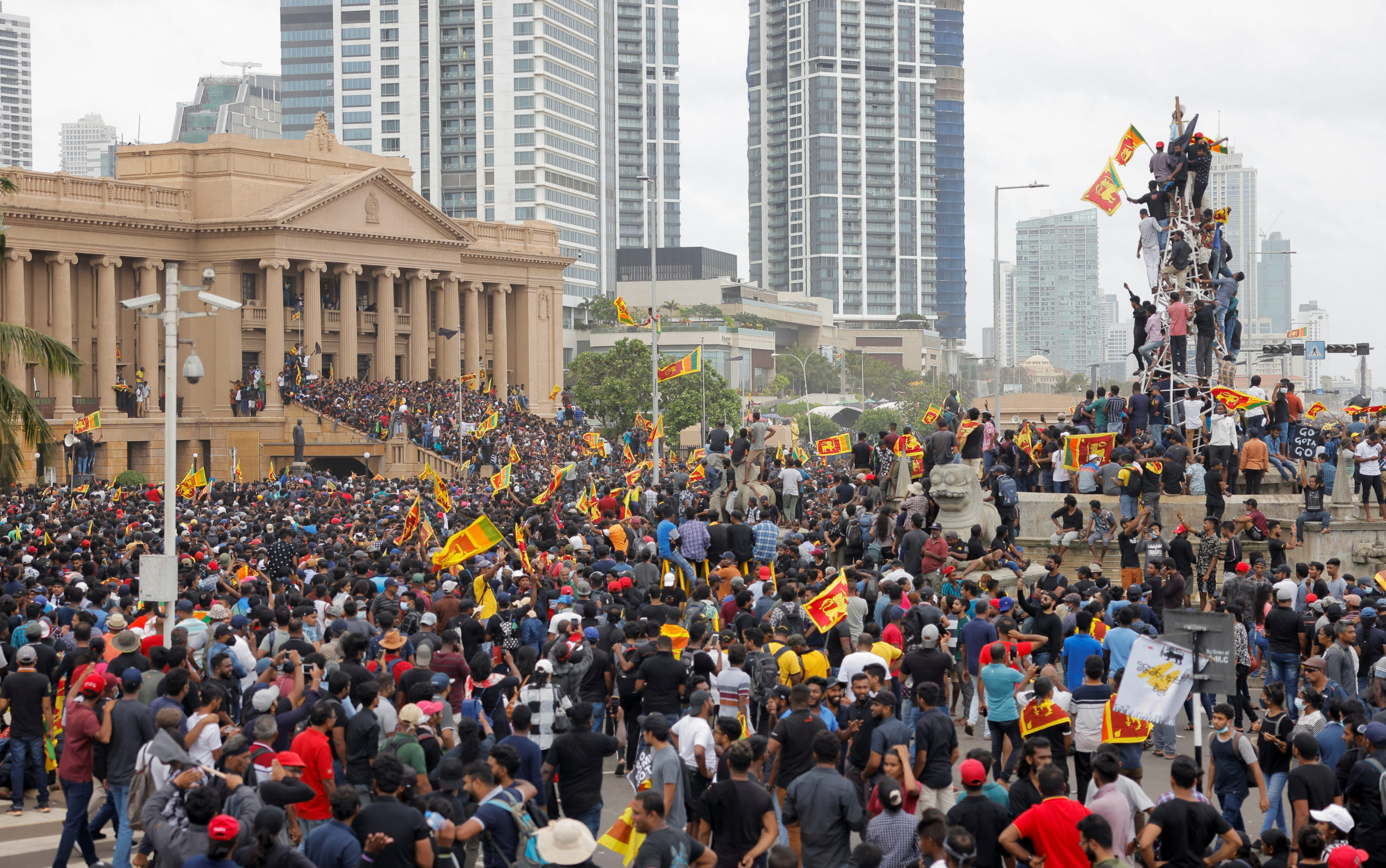Sri Lanka Crisis: Why is Saarc Missing in Action?

The unprecedented economic crisis in Sri Lanka has seen people queuing up for fuel, food and essential medicine as the government in May announced that it could not pay its USD 51 billion debt, and on July 5 announced that it was bankrupt. It appealed to the international community to step in and help Sri Lanka to overcome the unfolding humanitarian crisis as protesters spilled on to the streets. The international community, instead of extending assistance, blamed the Rajapaksas for the economic mess. Help flowed in mostly in terms of bilateral assistance, in which India topped the list for extending assistance to the tune of USD 3.8 billion – shipping fuel, food, medicine and fertilisers. Bangladesh came forward to provide USD 2.3 million in emergency medical supplies and potato relief package – an important food item in South Asia. China pledged a total food donation of 10,000 metric tons of rice to Sri Lanka and an assistance of USD 75 million. The US provided only USD 20 million, Japan USD 1.5 million to procure medicine. The UN announced humanitarian assistance of around USD 48 million over a four-month period. In June, it warned of an "unfolding multidimensional food security crisis."
In all these efforts, two regional organisations of which Sri Lanka is a member – Bimstec and Saarc – were missing. Saarc was more conspicuous with its silence. While a member country is facing a severe crisis, Saarc, which boasts of a Food Bank (SFB), is missing in action. Sri Lanka's Food Commissioner J Krishnamoorthy said the country had asked for food assistance from Saarc, but its secretary-general denied that they had received any such request. The question here is: Can Saarc be proactive in responding to a humanitarian crisis involving a member country?
The Saarc Food Security Reserve (SFSR) was established in 1987. In 1997-98, it was realised that there were procedural hurdles when Bangladesh, which had wanted to utilise the food reserve, could not. After that, the member states held a discussion on how to overcome these hurdles. A decision to convert it to the Saarc Food Bank was taken in the 14th Saarc Summit in 2004, and the members agreed to create the food bank in 2007. After ratification by the member states, the food bank came to force in 2013. In the 18th Saarc Summit in Kathmandu, the member states "directed to eliminate the threshold criteria from the Saarc Food Bank Agreement so as to enable the member states to avail food grains, during both emergency and normal-time food difficulty."
One of the objectives of the SFB is to act as a regional food security reserve for the member countries during food shortages in normal times and during emergencies, and primarily to solve regional food shortages through collective action. The members are required to store the necessary amount of food grain they pledged and earmarked for the purpose and maintain the quality as laid down by the SFB Board, which meets annually. Each member country, in case of a food shortage due to "severe and unexpected natural or man-made calamity," can request another member country through nodal agencies for the speedy release of food grains. And within two years, "it shall replace such food grains." The SFB also stipulates that in the case of emergency, the humanitarian aspects would be given due importance while determining prices. The Saarc Food Bank Information System (SFBIS) has already been established to provide information on the reserves.
When the food bank was established, members had agreed to a committed reserve of 243,000 metric tons, which has now been revised to 486,000 metric tons of food grains. India, which contributes the largest share of grains to the food bank, has revised its contribution from 153,200 metric tons to 306,400 metric tons, (63 percent), followed by Bangladesh and Pakistan. The first transaction of SFB took place in May 2020, when a shipment of rice was sourced by the Food Corporation of Bhutan Ltd from the SFB in India. In spite of this provision, it is not clear why Sri Lanka relied on bilateral food aid. Interestingly, the SFB's 11th board meeting took place in 2020 in Colombo under the chairmanship of Chamal Rajapaksa.
Saarc's inability to respond to the humanitarian crisis reflects a lack of the sense of regionalism. It is in the time of crisis that one expects the regional organisation to make itself relevant to the people. It is true that there is a disconnect between Saarc and the people of the region due to excess bureaucratic structures and procedures and a lack of major achievements to showcase. It has taken up all the relevant issues that the region confronts in its agenda, which is reflected in its nine areas of cooperation. It has important conventions, like the convention on terrorism, and additional protocols to the convention on terrorism. Yet, it has been found wanting in addressing the issue of terrorism. It has introduced the South Asia Free Trade Agreement (Safta). Yet, Except for India, which has only 25 items, and Bhutan and the Maldives, which have more than 150 items, the other member states have more than 900 items on their sensitive lists, defeating the purpose of free trade. It is yet to sign a multimodal transit agreement due the zero-sum nature of regional geopolitics. All these illustrate a mindset of non-cooperation – formally agreeing to cooperate, vouching on regional spirit, but undermining cooperation by making these conventions and agreements non-operational.
Even though the Saarc Charter has kept bilaterally contentious issues out of its agenda, and has carefully chosen non-controversial issues as part of its agenda, the regional cooperation mechanism for all practical purposes has remained defunct due to a lack of political will and bilateral disagreements. Initiatives to resuscitate the regional cooperation mechanism through the initiation of Saarc Covid-19 fund failed. The Covid-19 pandemic was one of the unfortunate occasions that could have revived Saarc.
Though the Saarc Food Bank was operationalised in 2020, it remains unclear why Sri Lanka has not approached it, while it appealed to the international community for humanitarian assistance. Is it that it felt its immediate need for food cannot be met by the SFB, because it requires price negotiation, and Sri Lanka has to foot the transportation costs? Can the Saarc Council of Ministers meet virtually and take proactive measures on how to assist Sri Lanka?
Saarc in the past failed to rise to the occasion in times of natural calamities – whether it was a flood, cyclone or an earthquake. It has lost all opportunities to stand with the people of the region. If not for the sake of the people, at least for the sake of its own existence, Saarc has to make its presence felt by reinvigorating itself to provide humanitarian assistance. If Saarc as an organisation and its food bank cannot extend help to Sri Lanka, which is a member state, it will only illustrate that the regional spirit is dead – a body without a soul.
Smruti S Pattanaik is a research fellow at the Manohar Parrikar Institute for Defence Studies and Analyses (MP-IDSA) in New Delhi, India.




 For all latest news, follow The Daily Star's Google News channel.
For all latest news, follow The Daily Star's Google News channel. 
Comments